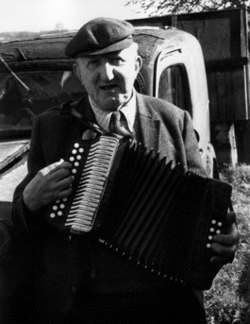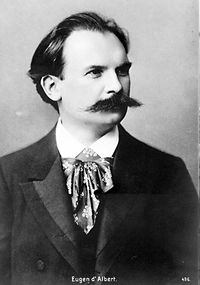Annotation:Percy Brown's Polka
X:1 T:Percy Brown's Polka M:C| L:1/8 R:Polka S:Percy Brown (Aylsham, Norfolk) K:G D2B2 BA B2|D2B2 BA B2|D2B2 A2G2|F2E2A2E2| [1 E2c2 cBc2|E2c2 cBc2|D2E2F2G2|A2F2E2D2:| [2 E2c2 cBc2|B2A2 A3G|G2F2E2F2|(G4 G4)|| |:D2G2B3B|c2B2B3B|B2A2A3B|A2G2G4:| d2D2 DED2|E2c2c3A|c2E2F2E2|D2d2 d3c| d2D DE D2|E2c2 c3A|G2F2E2F2|(G4 G4)|]


That same strain along with the third strain of "Percy Brown's" were composed by Charles d'Albert (1864-1932) as "King Pippin Polka." d'Albert was a Glasgow-born pianist and composer who was a student of Franz Liszt. The son of a French/Italian father and an English mother, D'Albert never spoke English fluently, and considered himself to be German, and became a naturalized citizen of Germany later in life. He composed 21 operas, a symphony, two piano concerti, and numerous lesser works.
